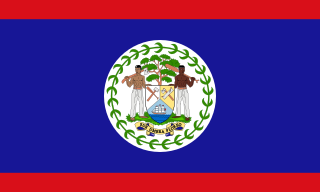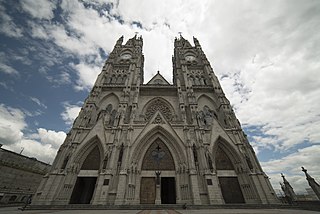Related Research Articles
These are articles that list people of a particular religious or political belief or other worldview.

Christianity is the predominant religion in the Philippines, with the Catholic Church being its largest denomination. Sizeable minorities adhering to Islam, Dharmic religions, and indigenous Philippine folk religions are also present.

The predominant religion in Brazil is Christianity, with Catholicism being its largest denomination.

Christianity is the most widely professed religion in Argentina, with Roman Catholicism being its largest denomination. This historical background is very much due to the Spanish influence brought about through the newly conquered territories. However, affiliation with Protestant churches is increasing and immigration throughout the 20th century has brought other religions from various regions to Argentina.
Religion in Trinidad and Tobago, which is a multi-religious country, is classifiable as follows:

Religion in Taiwan is characterised by a diversity of religious beliefs and practices, predominantly those pertaining to the continued preservation of the ancient Chinese culture and religion. Freedom of religion is inscribed in the constitution of the Republic of China (Taiwan). The majority of Taiwanese people practice a combination of Buddhism and Taoism often with a Confucian worldview, which is collectively termed as Chinese folk religion.

Christianity is the predominant religion in Uganda. According to the 2014 census, over 84 percent of the population was Christian, while about 14 percent of the population adhered to Islam, making it the largest minority religion. Anglicanism and Catholicism are the main Christian denominations in the country.

Christianity is the dominant religion in Belize. The single largest denomination is the Catholic Church with about 40.1% of the population, a reduction from 49.6% of the population in 2000, 57.7% in 1991 and 61.9% in 1980, although absolute numbers have still risen. Other major groups include Pentecostal with 8.4% of the population up from 7.4% in 2000 and 6.3% in 1991, Seventh-day Adventists with 5.4% of the population up from 5.2% in 2000 and 4.1% in 1991. The following of the Anglican Church has been steadily declining, with only 4.7% of the population in 2010 compared to 6.95% in 1991. About 12,000 Mennonites live mostly in the rural districts of Cayo and Orange Walk. People who declared they belong to no religion make up 15.5% of the population in 2010, more than double their 2000 census numbers. 11.2% adhere to other religions which include the Maya religion, Afro-Caribbean religions, Mormons, Hindus, Buddhists, Muslims, Baháʼís, Rastafarians and others.

Christianity is the dominant religion in Kenya, adhered to by an estimated 85.5% of the total population. Islam is the second largest religion in Kenya, practiced by 10.9 percent of Kenyans. Other faiths practiced in Kenya are Baháʼí, Buddhism, Hinduism and traditional religions.

Religion in Colombia is dominated by various branches of Christianity and is an expression of the different influences in the Colombian culture including the Spanish, the Native Amerindian and the Afro-Colombian, among others.

Christianity is the largest religion in Uruguay, with Catholics having the most adherents, but around 44.5% of the population is non-religious as of 2021. Church and state are officially separated since 1916.
According to various polls, the majority of Kazakhstan's citizens, primarily ethnic Kazakhs, identify as Sunni Muslims.

When it comes to religion, the Ecuadorian society is relatively homogeneous, with Christianity being the primary religion. Catholicism is the main Christian denomination in the country. There are also small minorities of other religions.

Christianity is the predominant religion in Paraguay, with Catholicism being its largest denomination. Before the arrival of Spanish missionaries, the people residing in the territory of modern day Paraguay practiced a variety of religions.

Christianity is the predominant religion in the Federated States of Micronesia and represents an integral part of the nation's identity.

Christianity is the largest religion in Nauru, with Nauru Congregational Church being the largest denomination, encompassing 35.71% of the population as of the 2011 census.

Christianity is the official and largest religion in Samoa, with its various denominations accounting for around 98% of the total population. The article 1 of the Constitution of Samoa states that "Samoa is a Christian nation founded of God the Father, the Son and the Holy Spirit".

Christianity is the most widely professed religion in Croatia, representing 87.4% of the total population. A large majority of the Croats declare themselves to be members of the Catholic Church.

Mauritius is a religiously diverse nation, with Hinduism being the most widely professed faith. According to the 2022 census conducted by Statistics Mauritius, 47.87% of the Mauritian population follows Hinduism, followed by Christianity (32.29%), out of which 24.94% are Catholic, Islam (18.24%) out of which 1.21% are Bangladeshi nationals and other religions (0.86%). 0.63% reported themselves as non-religious and 0.11% did not answer.
Database (WCD) 2010 and International Religious Freedom Report for 2012 of the U.S. Department of State. The article Religions by country has a sortable table from the Pew Forum report.
References
- 1 2 3 4 5 6 US State Dept 2022 report This article incorporates text from this source, which is in the public domain.
- ↑ "Palau Demographics Profile". indexmundi.com.
- 1 2 2020 Census of Population and Housing of the Republic of Palau (PDF) (Report). Vol. I Basic Tables. Koror, Palau: Office of Planning and Statistics. August 2022. Retrieved 2023-06-21.
- 1 2 3 Palau (2015). 2015 Census of Population, Housing and Agriculture Tables (PDF). p. 53. Retrieved 5 May 2021.
- ↑ "The Association of Religion Data Archives | National Profiles". Thearda.com. Retrieved 2023-06-03.
- 1 2 International Religious Freedom Report 2007: Palau. United States Bureau of Democracy, Human Rights and Labor (September 14, 2007). This article incorporates text from this source, which is in the public domain.
- ↑ Willard Price. Japan's Islands of Mystery. p. 111.
- ↑ Brigham Young University-Hawaii Campus (1981), p. 36
- ↑ Lawyers: Uighurs agree to go to Palau [ dead link ]
- ↑ "Six former Gitmo detainees resettle in Palau". Dawn . Nov 1, 2009. Archived from the original on November 3, 2009. Retrieved 23 August 2023.